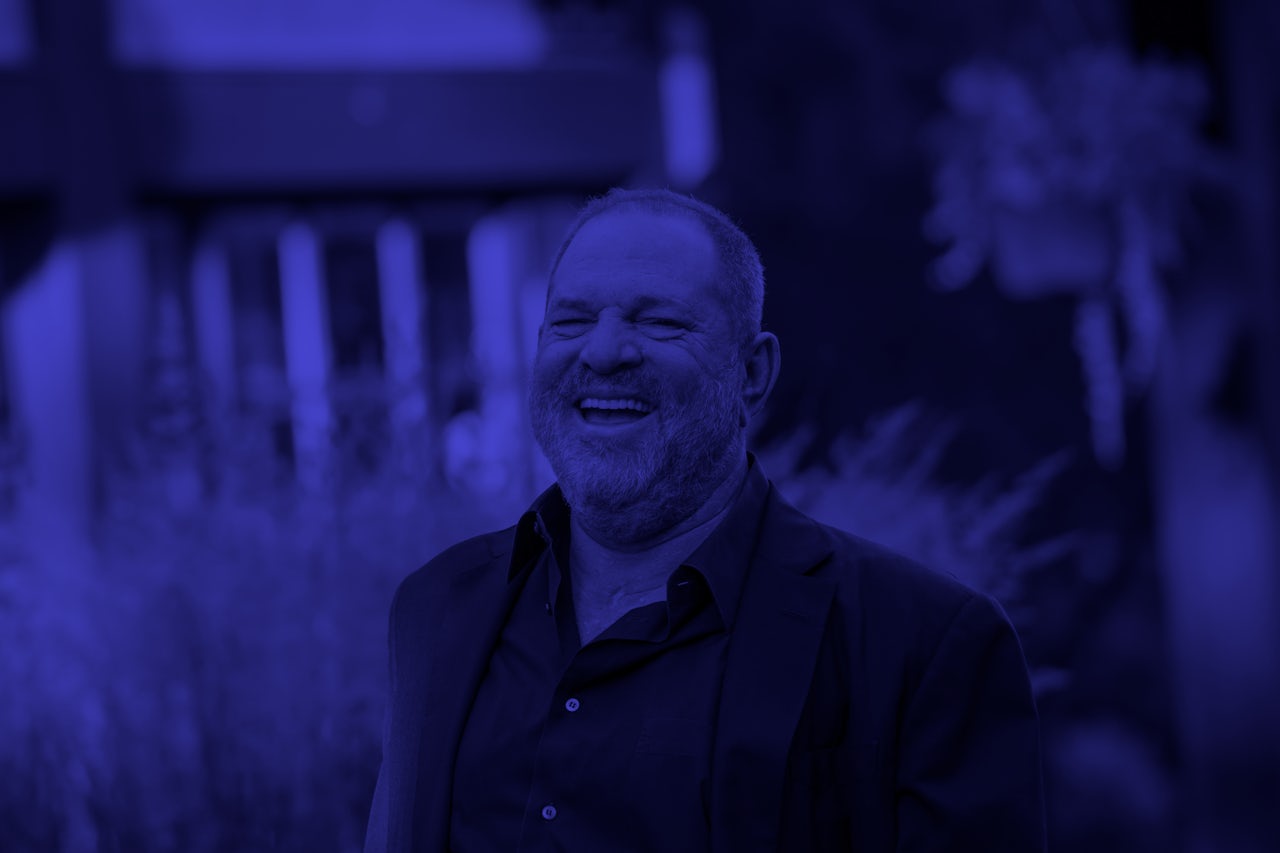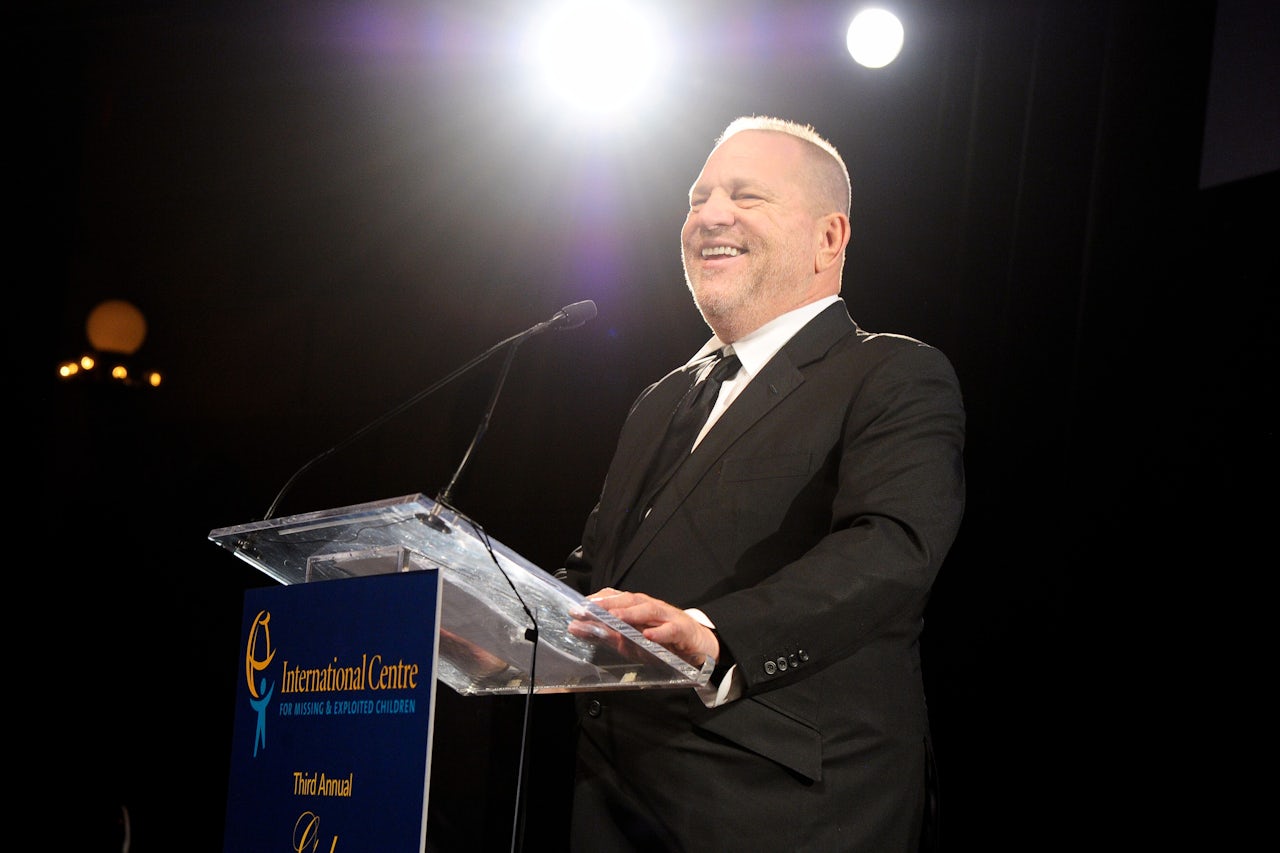[touches earpiece] I'm getting word that all of them are bad
— Anna Merlan (@annamerlan) October 12, 2017
There’s an old saying: “men are bad.” It’s become, in the past few years, a very popular “joke” on Twitter because most of the bad things — wars, capitalism, mass shootings — are perpetrated and created by (very often white) men, even though, of course, not all men are bad. Although the joke is wearing thin, the saying is finding new life as countless women have begun to ask: are all men actually bad after all? Are there any good ones? Is this a joke or not?
Somewhere, maybe, women have always known that men sexually harass women at an alarming rate but, because of deeply rooted power structures, it’s been a long time in coming to a full-scale realization. The explosive, weeks-long saga of Hollywood mega-producer Harvey Weinstein, who is now accused by 50 women (the number grows daily) of rape, sexual abuse, and harassment, has firmly lodged the conversation in the front of our minds once again, and the force of it is overwhelming.
Last week, a group of anonymous women made a spreadsheet of “shitty” (code for sexually bad) media men; others started up the “Me Too” hashtag (which was created by Tarana Burke, an activist and organizer, 10 years ago) again on Facebook and Twitter, telling their own story — or stories — of sexual harassment. For most of yesterday and the day before, my Facebook feed was overwhelmed by “Me Too” stories. There are just so many of them that we begin to wonder not just if all men are bad but if all women have been sexually harassed or raped. Reliable statistics on this stuff are, understandably, hard to come by but estimates suggest that about one in three women report having been sexually harassed at work. Some 60 percent of women working in Silicon Valley have been sexually harassed, according to one survey. One study suggests that about 63 percent of sexual assaults go unreported, and RAINN reports that one in six women will experience rape or attempted rape in their lifetimes.
In response to the "Me Too" movement, men started telling their own stories with the “I’ve Done That” hashtag (which seems to have begun on October 16 with the actor Amir Talai) because of course men can’t simply listen. They must perform their awakening, although it’s fair at this point to question who the performances are for. Are men scared? Guilty? Are they ready to admit vaguely to… something “bad” but not “super bad” because they’re trying to preempt being called out? What’s the difference between doing something “bad” and “super bad”? Why are so many men dying to admit they’ve been “creeps” but have definitely never raped anyone before, at least they don't think so?
Of course men can’t simply listen.
The language matters. A lot. Recent examples suggest that, even when cornered, performative public apologies from men won’t get us very far. Sexual harassers — when caught — do not excel at righting wrongs, even when the allegations come from multiple accusers.
In June of this year, Justin Caldbeck, the cofounder of the venture capital firm Binary Capital, was accused of sexual harassment by six women he worked with in a piece reported by The Information. He was accused of sending explicit text messages that suggested a woman coworker go with him to a hotel room during a meeting, grabbing a woman’s thigh under a table, and telling a woman he was in an open relationship (which, honestly, is a classic red flag of a dickhead). After the report was published, Caldbeck came out of the gate swinging with a statement: “I strongly deny The Information’s attacks on my character. The fact is, I have always enjoyed respectful relationships with female founders, business partners, and investors.” But one day later, after considerable outcry, he changed his tune:
The past 24 hours have been the darkest of my life. I have made many mistakes over the course of my career, some of which were brought to light this week. To say I'm sorry about my behavior is a categorical understatement. Still, I need to say it: I am so, so sorry.
I direct my apology first to those women who I've made feel uncomfortable in any way, at any time — but also to the greater tech ecosystem, a community that I have utterly failed.
Caldbeck finished off his letter with a bunch of paragraphs about the “system” and how “unfair” it was, deflecting attention away from himself and his specific actions. The move from “strongly deny” to “sorry to anyone I’ve offended” is significant ground to cover in one day, but Caldbeck managed to actually avoid taking responsibility for his actions by couching his apology in terms that suggest that he’s only sorry about his unacceptable behavior because his advances were unwanted: because he “failed.” (Intriguingly, Caldbeck's LinkedIn profile now says he is employed as "Head of Self-Reflection, Accountability & Change" for, I guess, himself.)
Weinstein’s non-apology to end all non-apologies came earlier this month after eight women accused him, in the New York Times, of sexual assault and harassment. It followed a familiar format: he apologized while crudely attempting to make his “behavior” sound fairly minor. And then he moved onto what I like to refer to as the “Big Problems,” issues that are, somehow, even in the apology letters of men accused of sexual assault, supposed to take precedence over the actual assaults. In Weinstein’s case the Big Problem was… fighting the NRA. Caldbeck suggested in his letter that he would like to “help drive necessary changes in the broader venture community.” The message that came through from both men was that they support the concept of making the world a better place when absolutely forced to, and when talking about doing so will draw attention away from their sexual assaults.
It’s notable that both Caldbeck and Weinstein coded their behavior not as sexual assault, or sexual predation, or rape, but as “behavior” which made women “uncomfortable.” In Weinstein’s case, he opened with excuses about coming of age in the “‘60s and ‘70s” when “all the rules about behavior and workplaces were different.” But the “rules” don’t seem so different to the many women Weinstein successfully assaulted.
Both of these apologies also carry with them the truly mind-boggling suggestion that we — the public, the reader, the company shareholders, whomever — are concerned about the welfare of the guilty sexual assaulter who just got caught. Caldbeck wrote that he would be “seeking professional counseling” as he took “steps to reflect on [his] behavior with and attitude towards women.” Weinstein assured readers that he’d put together a “team of people” to help him out, and that he had “brought on therapists.” As if anyone cared, as if their welfare matters more than that of the people they've harmed.
It's also interesting to note is that both of the above-mentioned sadsacks made not one but two statements. Caldbeck’s first denied everything, while Weinstein’s first admitted that he’d behaved poorly, but it also misquoted Jay-Z and came with notice that he’d be suing the New York Times. Caldbeck’s second note, however, was truly in the weeds, clarifying for the reader how “dark” his day was. Weinstein noted in his second statement that he was “profoundly devastated” at the news that his wife was leaving him and taking the kids, too.
Certain men support the concept of making the world a better place when absolutely forced to.
What changed in the hours between the first statements and the second ones, in both cases, was that the reporting, by The Information and the Times, was examined and read closely and found to be impeccable. There were no character assassinations of the accusers, no attempts to discredit their stories. In Weinstein’s case, more accusers came forward. The men in question were caught — with ample proof — and no amount of denial or threats or secret deals that could keep the lid on things for them any longer. The women in both cases chose to speak, and there was power in their words and their numbers.
Maybe there’s a sea change coming. In the past, powerful men were assured multiple opportunities to rehabilitate themselves, their careers bruised by improper conduct with a woman, perhaps, but certainly not destroyed. Deference has traditionally been given to the accused — in the spreadsheet debate, plenty of ink was spilled over the possibility that a man might be on there falsely or maliciously; one writer concluded that a false accusation against a man was more worrisome than allegations of repeated rape by multiple women.
But the fact is that women are no longer silent or unheard. The flood gates are, for now, open. Men still suck at admitting their crimes, and they still do not know how to draft an apology. Their sense of entitlement to the world remains — according to a recent report, Weinstein still believes he will be given a "second chance" in Hollywood. But their words and opinions don’t seem to matter that much anymore. They’ve said so much, and none of it has been good.

